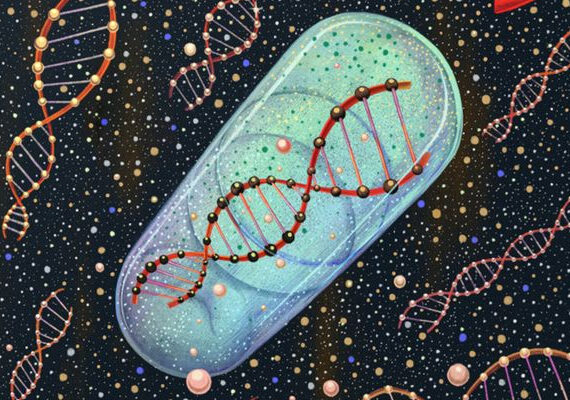Author’s Note: This is the first part in a three-part series on how genetics, geography, and religion together form nations.
One subject in history that particularly fascinates me is how nations are formed – the process by which two tribes are able to combine well enough to form a coherent nation, such was the case of the Angles and Saxons uniting to become English. Or, when a former single nation breaks up and becomes two or more nations, like when English settlers in New England and the South eventually broke into two distinct nations, Yankeedom and Dixie. This essay will be the first in a three-part series to examine the three fundamental building blocks of nationhood that work in tandem to form nations: blood (genetics), soil (geography), and faith (religion). For the process of nation-creation, all three are needed. If one is missing, a nation cannot truly be formed and understanding each is absolutely essential and will get its own essay in this series. In this first essay, I will examine the genetic, i.e., the blood aspect of nation formation.
True nations must have a genetic component – the people in them must be closely enough related to consider each other as belonging to a single nation. As taboo as it might be to admit today, quite a bit of human behavior is controlled by genetics. With this in mind, and understanding nations are grouped together genetically, it does make sense that certain national traits have a basis in genetics. What this means is people of a similar genetic makeup will form a rationale and consistent nation, while those of a radically different genetic background cannot. For example, there are genes associated with risk-taking and these genes range from being nearly non-existent to completely non-existent in certain East Asian countries. Though this is far from the only reason, a large element of those genetic cultures is one of compliance and obedience to authority. By contrast, Africans have a very high rate of the risk-taking gene, hence the tendency of blacks, on both sides of the Atlantic, to take more risks. Any attempt to combine East Asians and blacks into a single nation would be disastrous, as their genetics produce two different cultures – the low-risk and cautious culture of East Asia versus the high-risk culture of Africans.
Nations are grouped by genetics and, until very recently, marriage between people of two different nations was very rare outside of the nobility, where it was common for diplomatic and cultural reasons (i.e., nobles did not want to taint their blood with commoners, even commoners from the same nation, so they would marry nobles from outside their own nation). And even then, there were limits. For instance, a French duchess would not marry a Muslim king, no matter how much sense it may have been diplomatically. Because these genetic differences were passed down generation-after-generation, nations began to take on established traits that can be linked to their genetics.
East Asian culture, genetically predisposed to avoid risk, has produced a culture where risk-taking is frowned upon. This is not to say that genetics are the sole reason East Asians are this way; as soon as a cultural force like Confucianism took over, there was going to be a lot of selection for low risk-taking behavior, those who did tend to take risks would have quickly found themselves exiled from such a society. However, this does mean that they cannot be readily transformed into risk takers. This can be observed in the behavior of East Asians in the West, where there is a far greater emphasis placed on generating wealth safely- i.e., being a doctor than generating wealth in a more high-risk fashion, i.e., entrepreneurship. This is also why Asians typically commit very little crime, another Asian trait that is seen both in and outside of Asia, criminal behavior is risky, and they are predisposed to avoid such behavior.
But there is also a more fundamental reason why nations must have a genetic component – we tend to gravitate and more easily relate to people who look more similar to us. And, this is not a result of racist brainwashing or some other nonsense that gets peddled by the Left to explain this reality. It is completely natural, as seen in infants displaying this same behavior. Hence, why once distinct, though still very similar, tribes like the Angles and Saxons were able to unite and become English, they were similar enough before they began to intermarry that they made a cultural fusion possible (they were still Germanic). Had the Angles and Saxons had a radically different genetic makeup, the formation of a single English nation would not have been possible.
Of course, genetics, while important for the creation of nations for reasons explored above, is not a magic key to unlocking everything about the formation of a nation. I, as someone whose family has been in Dixie since the 1630s, am genetically very close to an old stock Yankee from Vermont. But, to use this fact to argue that we belong to the same nation would be reductionistic, ignoring the differences between us in terms of environment, culture, and likely religion. This is why genetics is only a building block for a nation, even if it is important. Other factors must play a role as well, and of these, soil (geography and climate) and faith (religion) stand out.
As genetics advances as a science, a certain paradox has developed largely thanks to socially imposed taboos. We are finding out more and more just how important genetics are, but, at the same time, discussing these differences has become more and more difficult. Regardless, taboos cannot change scientific truth – certain behavior can be linked to certain genes and these genes will be observed more in some nations and less in others, meaning that there is a reason some nations have particular traits associated with them. East Asian genetics can explain, at least in part, why the culture, as a whole, is risk-adverse and dedicated to a holistic understanding of society where each member has its place. As a general rule, blacks tend to take more risks; this is genetic and, as such, a high risk-taking society will develop. But even beyond the particular traits a gene or set of genes may produce, we are geared to unite with those who look similar, further revealing how genetics is a major component in the formation of a nation.







This is the reason I’m not afraid to “own the insult” when some leftie or other calls me a “white supremacist.” Of course I’m a white supremacist; my momma didn’t raise no fool, for goodness sakes – if I gotta have people ruling it over me, I’d just as soon my rulers look like me, conduct themselves more or less like me, share the same political beliefs as I do, profess the same religious beliefs and so on and so forth. In those senses, sure I’m a white supremacist. Come to think of it, I’m actually not a White Supremacist, I’m a Southern Supremacist since, as you point out in the O.P., not all whites are “created equal” either.
Good article. I look forward to the next in the series.
‘One of themselves, even a prophet of their own, said, The Cretians are alway liars, evil beasts, slow bellies.’ Titus 1:12 (Apostle Paul, 1st century racist)
I wouldn’t be too quick to minimize the genetic difference between us and yanks. It’s obviously not as distant as between us and Asians or Africans, but it is a very real and very significant gap that we should not deny or discount, even though we will be continually pressured to do so.
I even consider genetics to be the hill to die on in terms of our ethnic identity. Someone can convert religious beliefs, can affect a new dialect or acquire another language altogether, can take up eating the cuisine of another nation, can change his location and can change his name. But he will not change his genetic makeup that he passes on to his children. No matter how much he suppresses his own ethnicity outwardly, he still passes on the same genetics.
I tend to think of land more as a territorial claim than part of our identity. But I am open to persuasion on the matter and look forward to the remainder of the series.